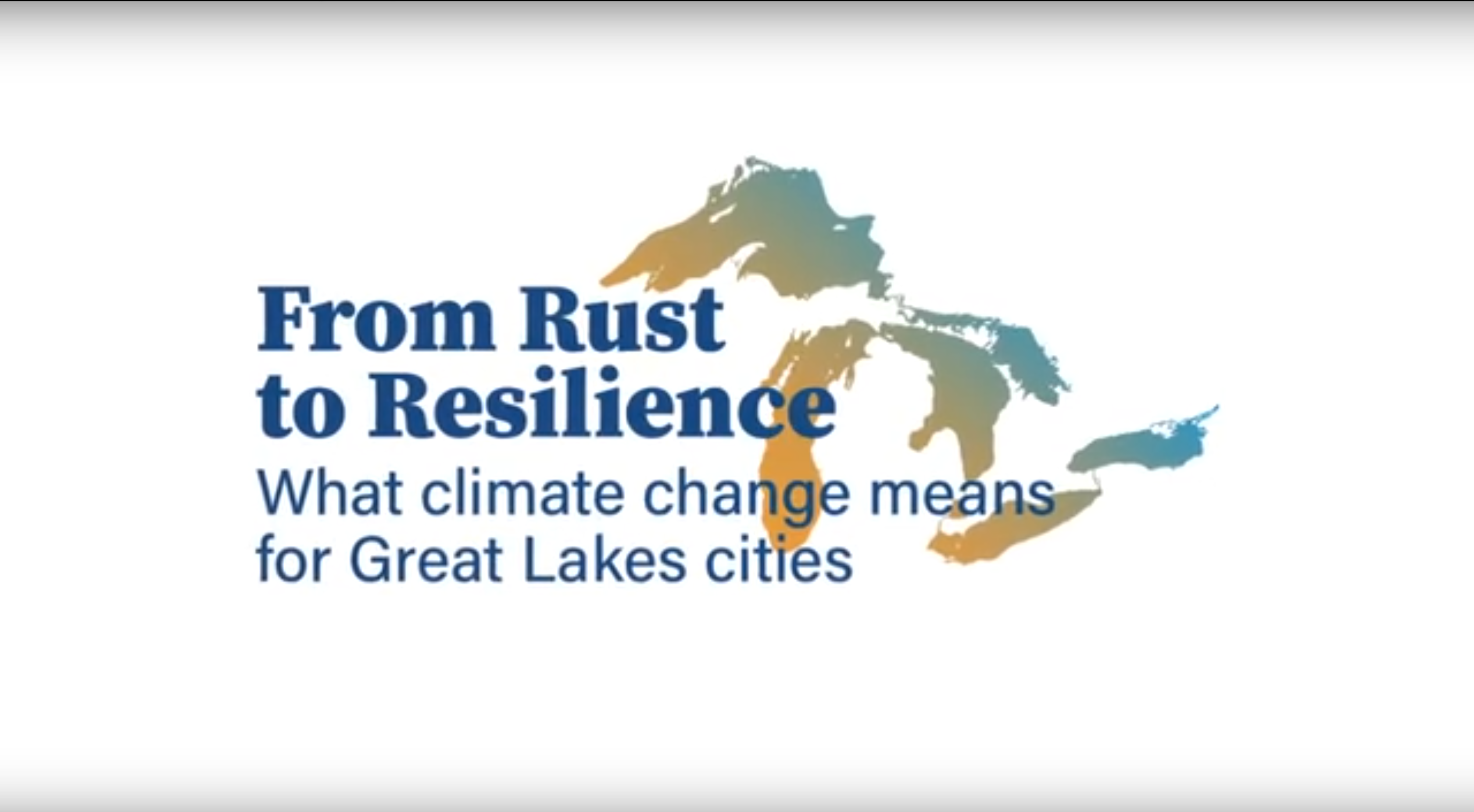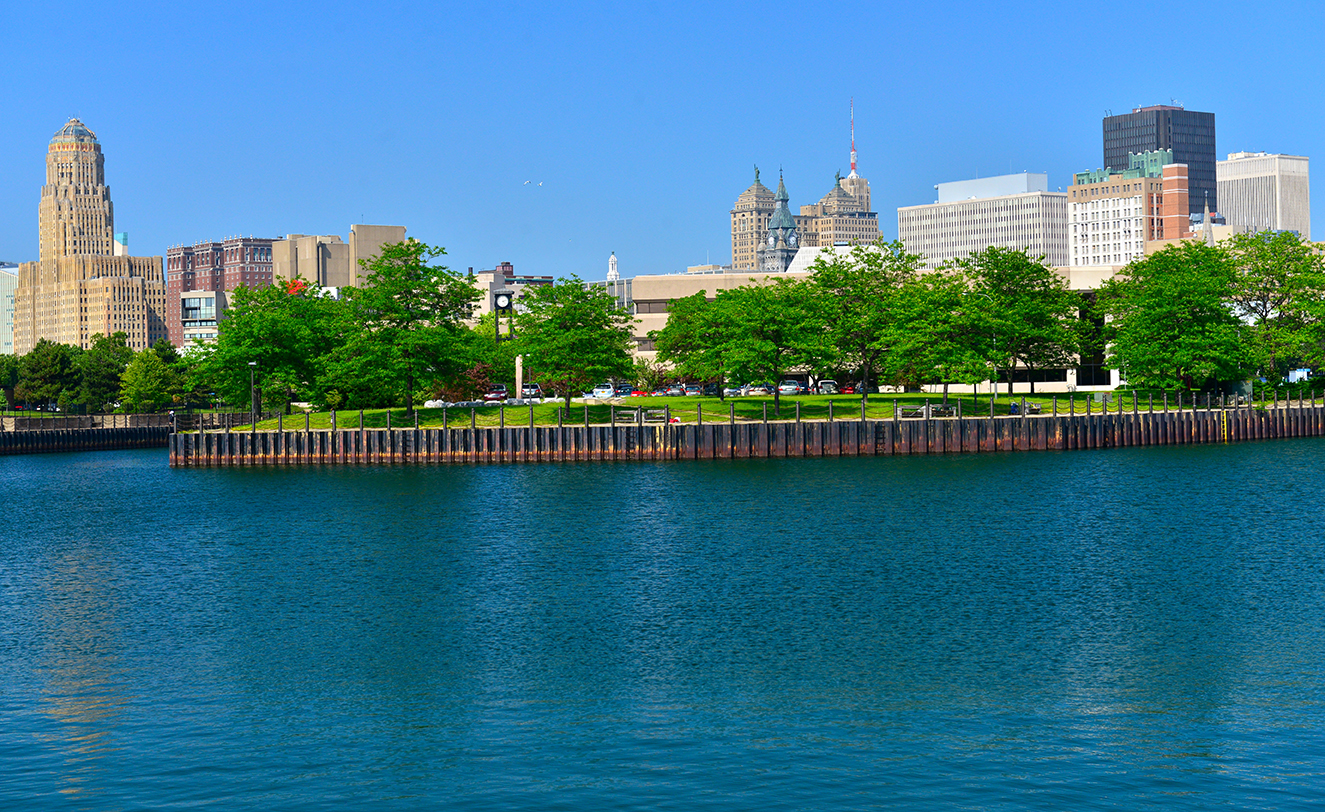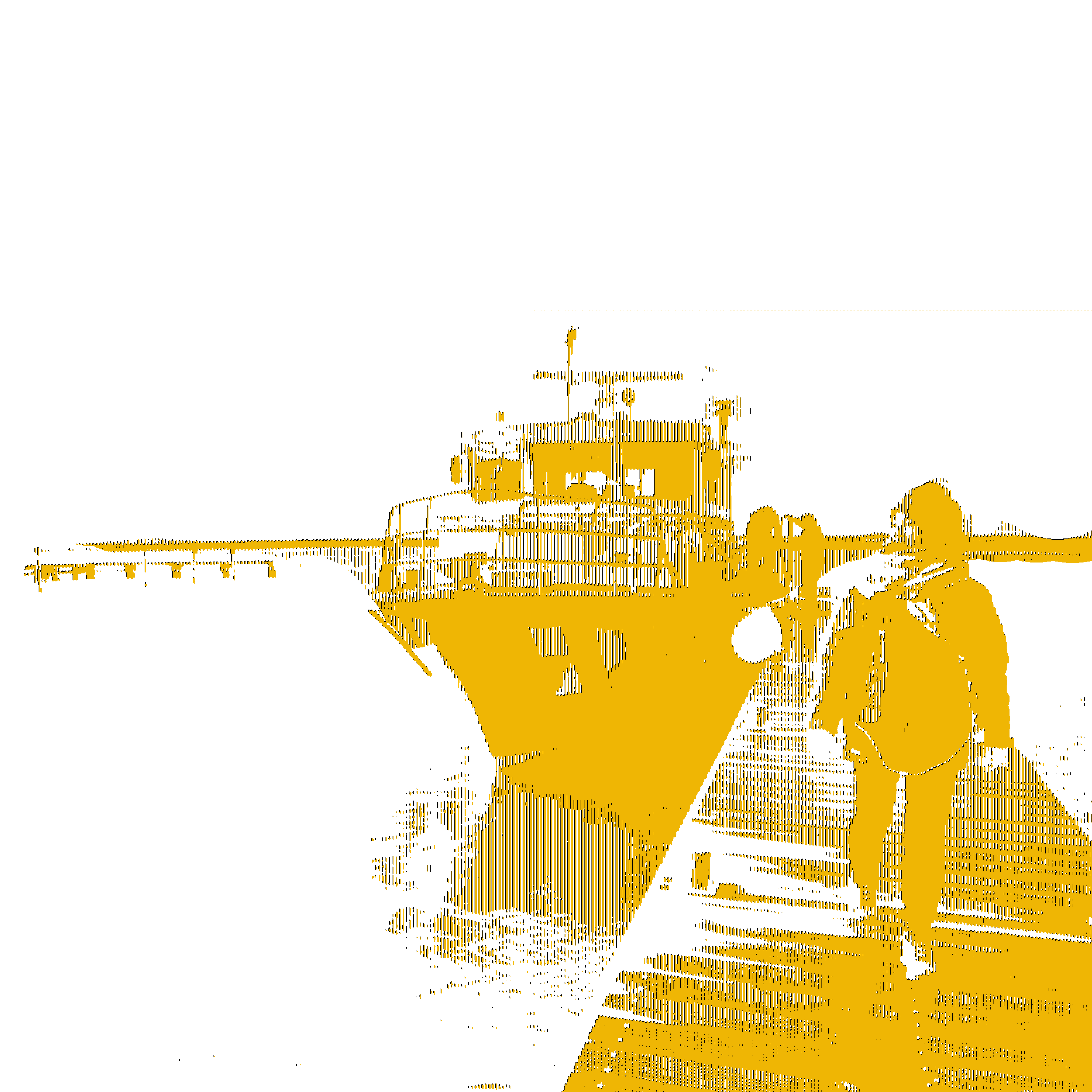
Rebuilding Chicago's iconic lakefront, managing Buffalo's rainwater and sewage, and tracking the annual algal blooms in Lake Erie are all part of the Great Lakes region's effort to manage the impacts of climate change. This month, GreatLakesNow takes you to meet the citizens, city leaders and scientists who are working on these issues.
As climate change makes other parts of the U.S. increasingly inhospitable, the Great Lakes region could become a "climate refuge" where temperatures are relatively moderate and the lakes themselves provide ample freshwater — an increasingly valuable commodity. At the same time, the region is highly vulnerable to the heat waves, flooding and severe storms expected to increase with climate change. Aging infrastructure and sewer systems that combine stormwater with wastewater along with shorelines vulnerable to water level changes, make Great Lakes municipalities especially susceptible to climate change impacts.










